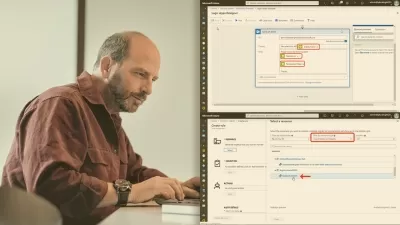Managing Microsoft Azure Role Based Access Control
Gabriel McNeilly
2:03:53
Description
This course will teach you how to implement Azure RBAC to control administrative access to Azure resources and help your organization adhere to the principle of least privilege.
What You'll Learn?
Adhering to the principle of least privilege is vital for minimising the potential cost of security breaches in Azure and using Azure RBAC is an effective way of achieving this. In this course, Managing Microsoft Azure Role Based Access Control, you’ll learn to understand and implement Azure RBAC in order to efficiently manage administrative access to Azure resources. First, you’ll explore the fundamentals of Azure RBAC and how it compares to Azure AD. Next, you’ll discover how to create custom roles that fit your organisation’s specific needs. Finally, you’ll learn how to take your Azure RBAC implementation to the next level by troubleshooting, auditing and automating role assignments. When you’re finished with this course, you’ll have the skills and knowledge of Azure RBAC needed to implement it effectively at both the small and enterprise scale.
More details
User Reviews
Rating
Gabriel McNeilly
Instructor's Courses
Pluralsight
View courses Pluralsight- language english
- Training sessions 36
- duration 2:03:53
- level average
- Release Date 2023/12/15











